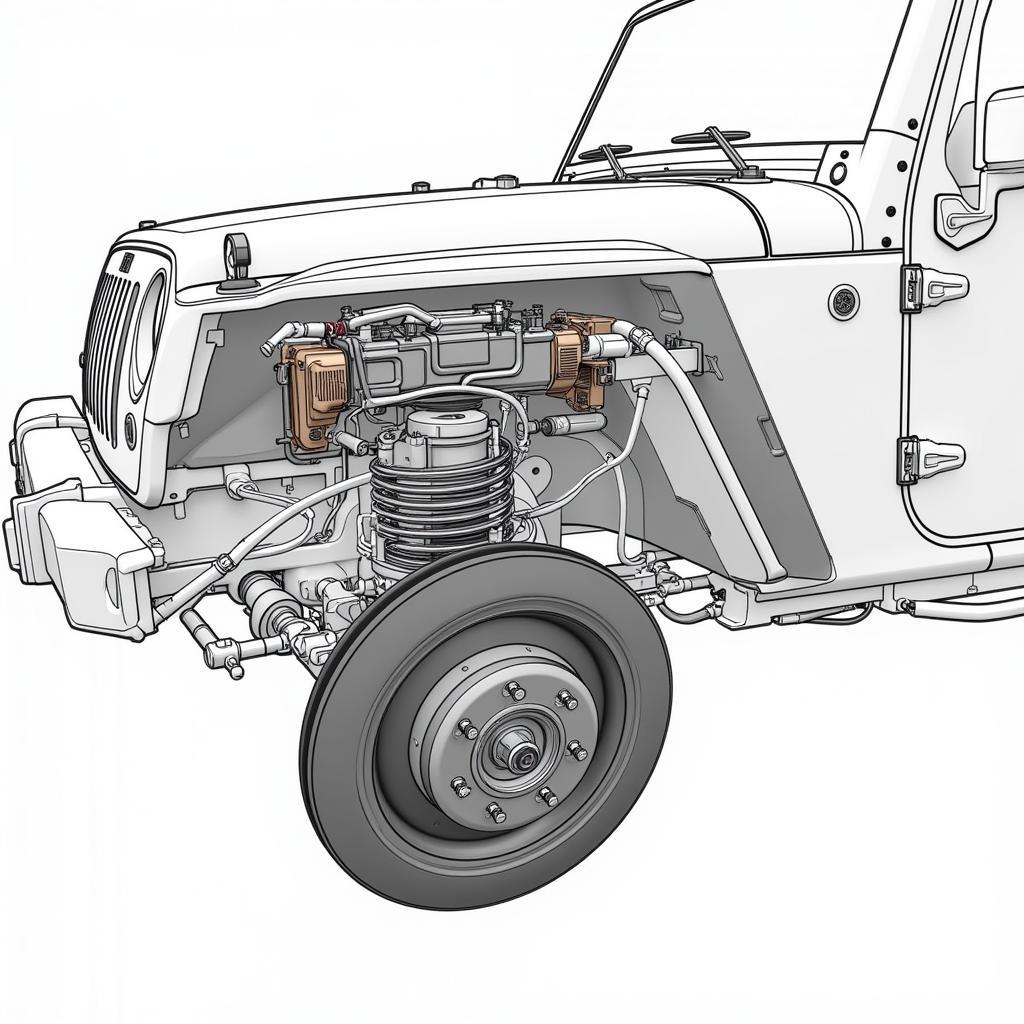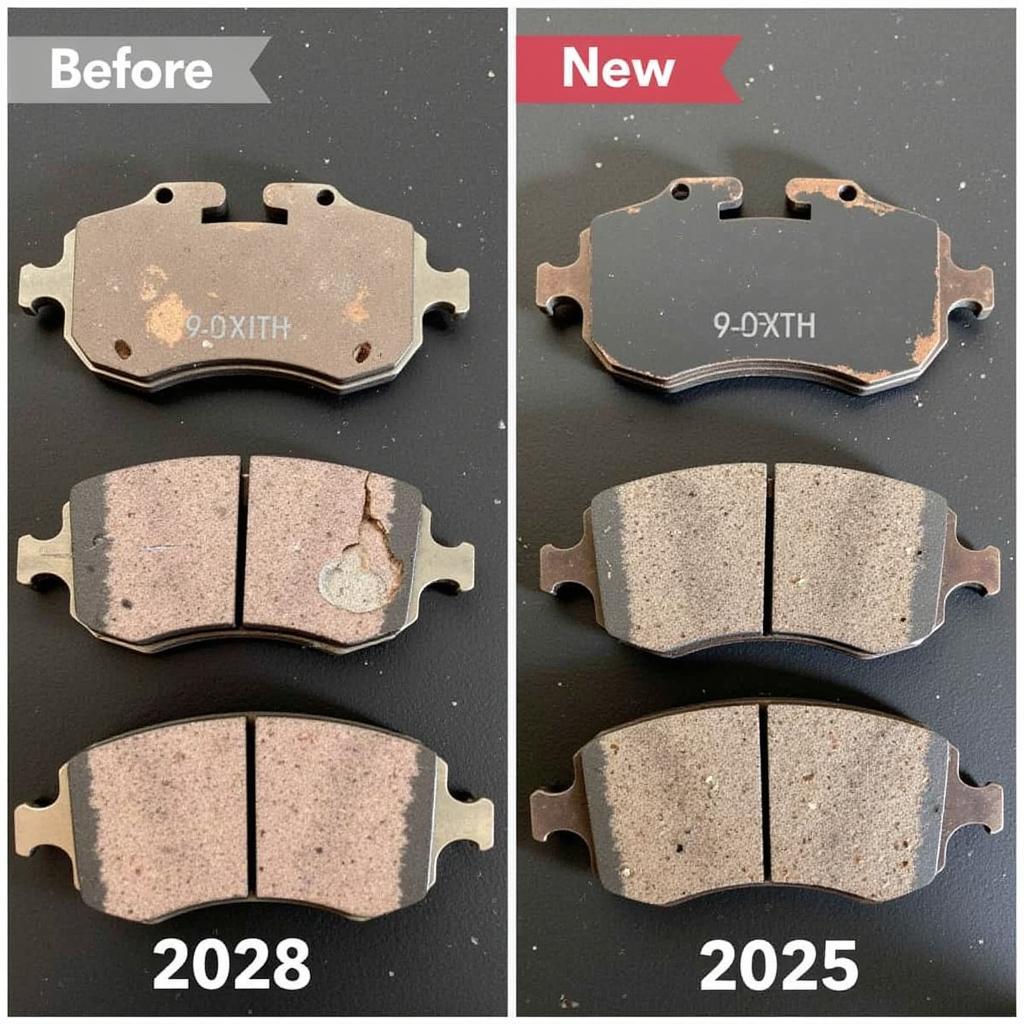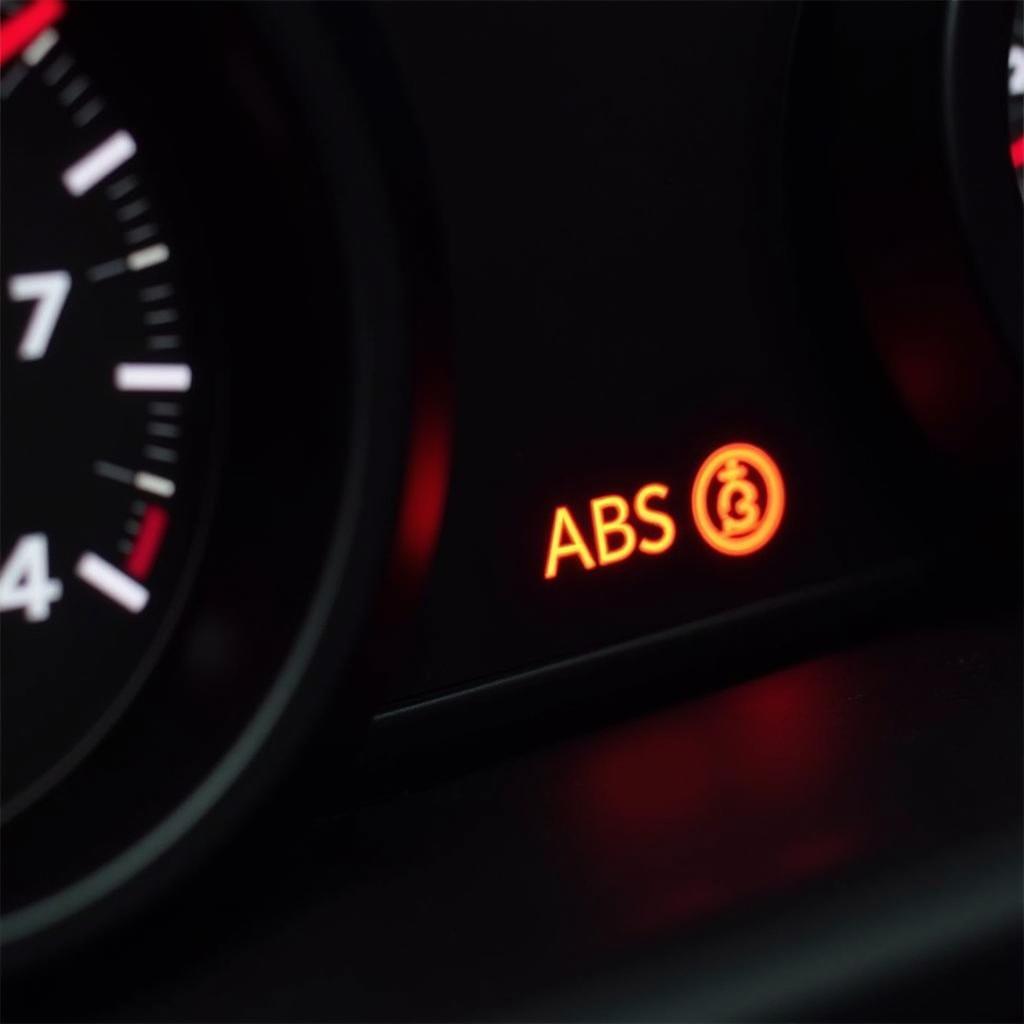The brake warning light on your Jeep JK is a crucial safety feature, illuminating when the vehicle’s onboard computer detects an issue within the braking system. Ignoring this warning light could lead to reduced braking performance and potentially dangerous situations. This comprehensive guide will delve into the common causes of the Jeep JK brake warning light and provide you with potential solutions to get you back on the road safely.
Understanding Your Jeep JK’s Brake System
Before we jump into the causes, it’s essential to understand the basics of your Jeep JK’s braking system. It comprises several components working together to slow down or stop your vehicle:
- Hydraulic System: This system utilizes brake fluid to transmit force from the brake pedal to the wheels.
- Brake Master Cylinder: This component acts as the heart of the hydraulic system, pressurizing the brake fluid when you press the brake pedal.
- Brake Lines and Hoses: These carry the pressurized brake fluid to each wheel.
- Brake Calipers and Wheel Cylinders: These components use the pressurized fluid to actuate the brake pads or shoes, creating friction against the rotors or drums to slow down the wheels.
 Jeep JK Brake System Components
Jeep JK Brake System Components
Common Causes of Jeep JK Brake Warning Light
A glowing brake warning light indicates a problem within one or more of these components. Let’s explore the most common culprits:
1. Low Brake Fluid Level
This is the most frequent cause of the brake warning light. Brake fluid level can decrease due to:
- Worn Brake Pads: As your brake pads wear down, the brake calipers need to extend further to engage the rotors, requiring more brake fluid in the system.
- Brake Fluid Leak: A leak anywhere in the hydraulic system can lead to a significant drop in brake fluid level.
Solution: Check the brake fluid level in the master cylinder reservoir. If it’s low, top it up to the recommended level with the appropriate DOT brake fluid specified in your owner’s manual. However, simply adding brake fluid without addressing the underlying cause is not a permanent solution. If you notice a consistent drop in brake fluid level, have your braking system inspected for leaks by a qualified mechanic.
2. Worn-Out Brake Pads
Brake pads are designed to wear down over time. When they reach a certain thickness, a wear indicator will contact the rotor, triggering the brake warning light.
Solution: If your brake pads are worn out, they need to be replaced. Driving with worn-out brake pads can significantly reduce your braking performance and potentially damage the rotors.
 Worn-Out Brake Pads vs. New Brake Pads
Worn-Out Brake Pads vs. New Brake Pads
3. Faulty Brake Caliper
A malfunctioning brake caliper can lead to uneven brake pad wear or prevent the brake pads from releasing properly, both of which can trigger the brake warning light.
Solution: Diagnosing a faulty brake caliper often requires a visual inspection. Look for signs of leaking brake fluid, stuck pistons, or uneven brake pad wear. Depending on the severity of the issue, the caliper might need to be rebuilt or replaced.
4. ABS System Malfunction
Modern Jeep JKs are equipped with an Anti-lock Braking System (ABS), designed to prevent wheel lockup during hard braking. The ABS system has its own control module, sensors, and pump, which can also trigger the brake warning light if a malfunction occurs.
Solution: If you suspect an issue with your ABS system, it’s best to have your vehicle scanned for trouble codes using a professional-grade diagnostic scanner. This will help pinpoint the exact location and nature of the malfunction, allowing for a targeted repair.
 Jeep JK ABS Warning Light
Jeep JK ABS Warning Light
What to Do When the Brake Warning Light Comes On
If your Jeep JK’s brake warning light comes on, it’s crucial not to ignore it. Here’s a step-by-step guide on how to proceed:
- Safely pull over: As soon as it’s safe, pull your vehicle off the road and come to a complete stop.
- Check the brake fluid level: Locate the brake fluid reservoir and check the fluid level. If it’s low, top it up to the recommended level with the appropriate DOT brake fluid.
- Inspect for visible leaks: Look for any signs of brake fluid leaks around the master cylinder, brake lines, and calipers.
- Avoid driving further: If the brake fluid level is significantly low or you notice a leak, do not continue driving. Call a tow truck to transport your Jeep JK to a trusted mechanic.
- Professional diagnosis: If the brake fluid level is normal and you don’t see any visible leaks, it’s still recommended to have your vehicle inspected by a qualified mechanic to diagnose and address the underlying issue.
“Ignoring your Jeep JK’s brake warning light is like ignoring a flashing red light at an intersection,” says John Smith, a seasoned automotive technician with over 20 years of experience. “It’s crucial to address the issue promptly to prevent potential accidents and ensure your safety on the road.”
Conclusion
A glowing brake warning light in your Jeep JK signifies a potential issue with your braking system that requires immediate attention. By understanding the common causes and following the suggested solutions, you can ensure your Jeep JK remains safe and reliable. However, it’s crucial to remember that this guide is for informational purposes only. If you’re unsure about any aspect of your vehicle’s braking system, it’s always best to consult with a qualified mechanic for a thorough inspection and professional repair.
